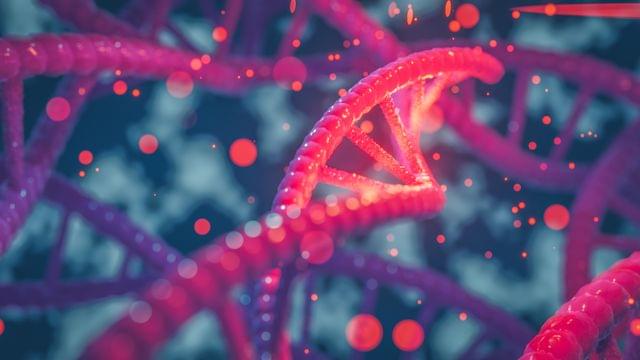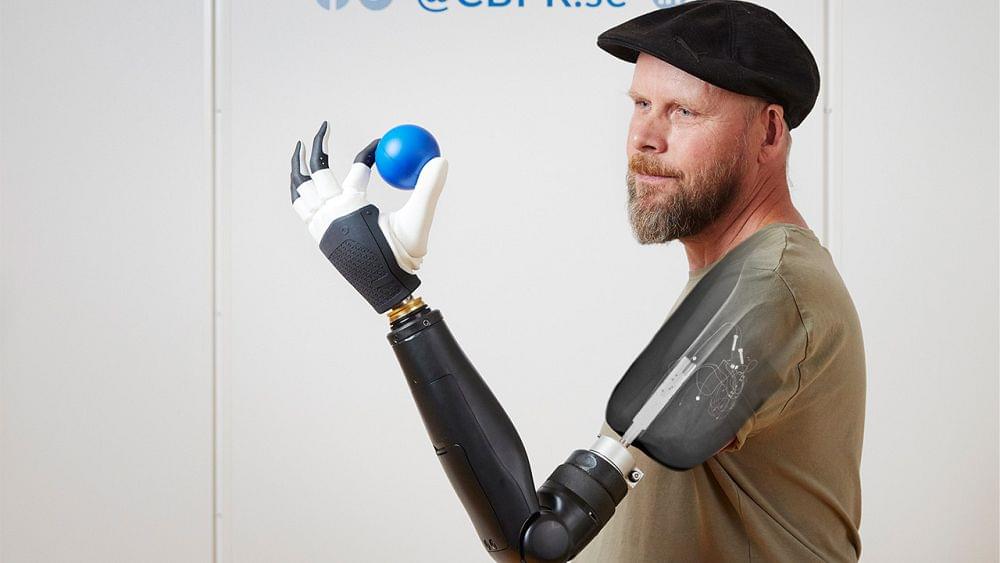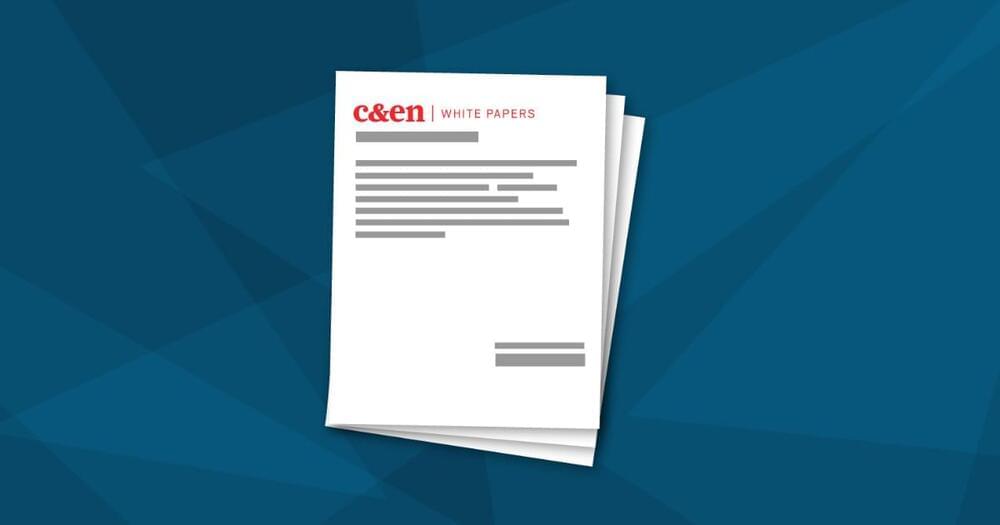A research team co-led by a physicist from City University of Hong Kong accurately measured the change in a nucleic acid induced by salt, temperature change and stretching force.



Vaccinations against tetanus and diphtheria, pneumococcus, and herpes zoster (HZ)- better known as shingles, are linked to a reduced risk of Alzheimer’s disease (AD). The corresponding study was published in the Journal of Alzheimer’s Disease.
Viral, bacterial, and fungal infections increase the risk of neuroinflammation, which may cause or exacerbate neurodegeneration and dementia. Vaccines may thus reduce neurodegeneration and dementia risk by reducing the risk of infection. Previous research, for example, shows that people who receive at least one influenza vaccine are 40% less likely than unvaccinated peers to develop AD.
Currently, the Centers for Disease Control and Prevention (CDC) Advisory Committee on Immunization Practices (ACIP) recommends older adults receive vaccines against tetanus, diphtheria and herpes zoster, and pneumococcus. The researchers behind the current study thus sought to see how these common vaccines may affect AD risk.
For C. Elegans, but but a cool use for the technology.
Magnesium Breakthrough 10% Discount _https://bit.ly/3O5tPfu_ Code Modern10 This video brought to you by BiOptimizers.
Here Prof Kaeberlein talks about the million molecule challenge and why he thought that it was necessary.
*Renue By Science* 10% : _https://tinyurl.com/4yrf4tv3_ Use SUBMHS for 15% discount on subscription orders.
*DoNotAge* 10% discount code MHS _https://tinyurl.com/ycyn9vhn_
Gym Bundle (Creatine, Collagen, CaAKG, D3/K2, Mg) https://tinyurl.com/2p9kf3by.
*ProHealth* 15% discount Code MODERN : _https://prohealth.pxf.io/c/3176409/1541296/17976_
NMN 1g capsules https://prohealth.pxf.io/Jz4dL2, CaAKG https://prohealth.pxf.io/75OrA5
*NOVOS* Core & NOVOS Boost $5 off with code MODERNnow5 _https://novoslabs.com/?ref=3957_
☕If you would like to support our channel, we’d love a coffee…thank you! _https://www.buymeacoffee.com/mhealthspan_
*Bulletproof* 15% off with coupon code: HEALTHSPAN15: _https://tinyurl.com/4npjk5vp_
*SiPhox Health* 20% Code MODERN blood test (only in US & Canada) _https://siphoxhealth.com/discount/modern_
*Insidetracker* 20% discount Code MODERN20 _https://insidetracker.sjv.io/NkbP7V_
*Delavie Sciences* 10% Code Modern Age Defying Serum https://tinyurl.com/yp2jmhy8 Eye Refresh https://tinyurl.com/mt8knv3s.
*OmegaQuant* 5% discount Code MODERN _https://omegaquant.com/shop/_
Dr. Kaeberlein’s research interests are focused on biological mechanisms of aging in order to facilitate translational interventions that promote healthspan and improve quality of life. He has published more than 200 scientific papers, has been recognized by several prestigious awards, and has Fellow status in the American Association for the Advancement of Science (AAAS), the American Aging Association, and the Gerontological Society of America (GSA). Dr. Kaeberlein is currently the CEO of the American Aging Association and has served on the Board of Directors for the Federation of American Societies for Experimental Biology (FASEB), AGE, and GSA. Dr. Kaeberlein is the founding Director of the UW Healthy Aging and Longevity Research Institute, the Director of the UW Nathan Shock Center of Excellence in the Basic Biology of Aging, Director of the Biological Mechanisms of Healthy Aging Training Program, and founder and co-Director of the Dog Aging Project.
Most of us who’ve reached middle age have noticed a slowing in memory and cognition, but scientists don’t have a clear picture of the molecular changes that take place in the brain to cause it.
Now, a study in mice has determined that the most pronounced changes occur in the white matter, a type of nervous system tissue that’s integral to transmitting signals across the brain. The study also examined two treatments — caloric restriction and infusions of plasma from young mice — that affect certain regions of the brain, with the plasma appearing to slow the age-related decline.
The results offer insight into the cognitive decline of normal aging, as well as the way aging contributes to neurodegenerative conditions such as Alzheimer’s and Parkinson’s diseases and multiple sclerosis.

New bionic hand with better move of fingers.
Successful testing of the bionic hand has already been conducted on a patient who lost his arm above the elbow.
In a world first, surgeons and engineers have developed a new bionic hand that allows users with arm amputations to effortlessly control each finger as though it was their own body.
The innovation could revolutionise the way prosthetic limbs are designed and used, with scientists hailing it as a “major breakthrough”.


The viral ALS Ice Bucket Challenge a few years ago raised major funding that resulted in the discovery of new genes connected to the disease. One of those genes is NEK1, in which mutations have been linked to as much as 2% of all ALS cases, making it one of the top-known causes of the disease.
But it wasn’t known how the mutated gene disrupts the function of the motor neuron and causes it to degenerate and die.
Northwestern Medicine scientists have discovered for the first time how this mutated gene leads to ALS (amyotrophic lateral sclerosis).
We know that humans are an intelligent species. But this biologist breaks down the intelligence of each of our cells — and it will blow your mind.
❍ Subscribe to The Well on YouTube: https://bit.ly/welcometothewell.
❍ Up next: An evolutionary history of the human brain, in 7 minutes https://www.youtube.com/watch?v=NGArM23mMNM
Michael Levin, a developmental biologist at Tufts University, challenges conventional notions of intelligence, arguing that it is inherently collective rather than individual.
Levin explains that we are collections of cells, with each cell possessing competencies developed from their evolution from unicellular organisms. This forms a multi-scale competency architecture, where each level, from cells to tissues to organs, is solving problems within their unique spaces.
Levin emphasizes that properly recognizing intelligence, which spans different scales of existence, is vital for understanding life’s complexities. And this perspective suggests a radical shift in understanding ourselves and the world around us, acknowledging the cognitive abilities present at every level of our existence.
Read the full video transcript: https://bigthink.com/the-well/intelligence-can-cells-think.

The company achieved proof-of-concept with trastuzumab, an anti-HER2 antibody. Preclinical studies show Multilink increases cytotoxicity and improves tumor regression.
In mouse studies, tumor volume after 49 days was approximately half its original size with Trastuzumab Multilink (T-Multilink) with mertansine (DM1), but had grown four-fold when treated with the same compound without the linker. Comparable studies with T-Multilink-auristatin F showed complete tumor regression by about day 25, while treatment without the linker allowed the tumor to approximately triple in size.
“Multilink is a powerful technology to tackle cancers with low antigen expression,” Marx says. Debiopharm is using it to develop “novel, potent, stable, and safe ADCs for various antibodies.”

Oral tyrosine kinase inhibitors (TKIs) are a class of cancer drugs that can be highly susceptible to issues with solubility in the gastrointestinal tract. Most crystalline TKI drugs have pH-dependent solubility that affects their bioavailability in an oral dosage form. Consequently, natural variations in gastric pH, or variations due to eating or taking antacids, can significantly impact drug absorption and, in turn, therapeutic efficacy.
Alternative formulation techniques such as amorphous solid dispersion (ASD) can still deliver the convenience of a pill while reducing TKIs’ sensitivity to physiological variation. This ensures more consistent—and higher—bioavailability. This whitepaper outlines the challenges associated with pH-dependent solubility for oral TKI drugs and reviews how leveraging ASD formulation can help create more effective, patient-friendly drug products.